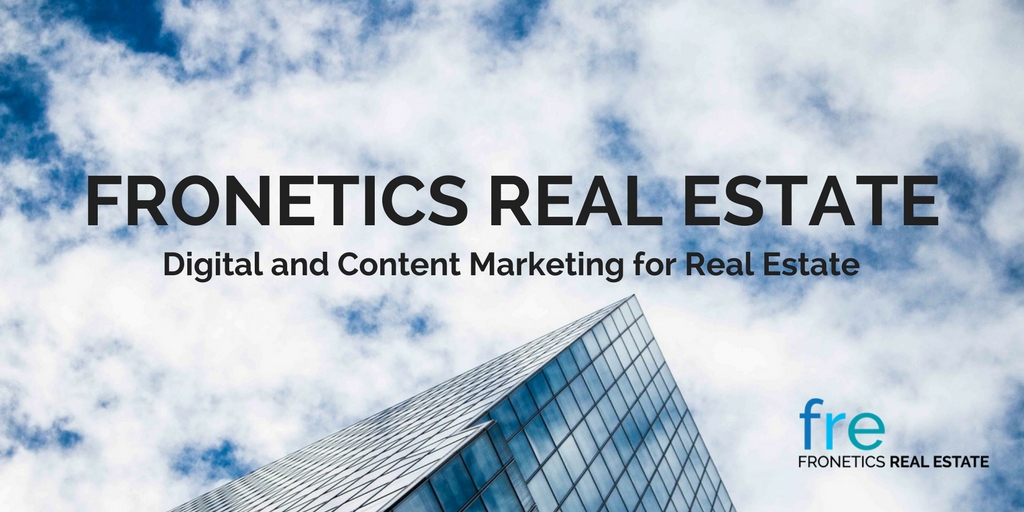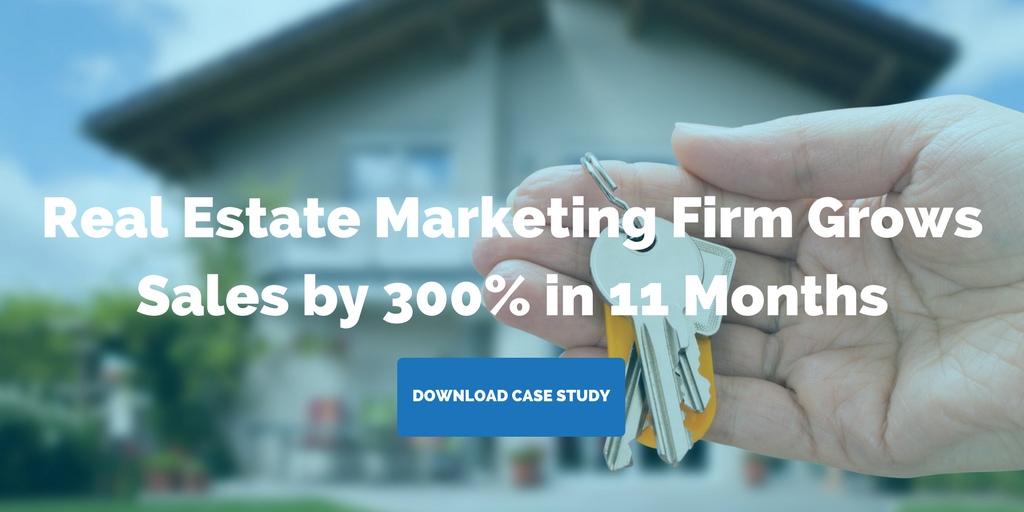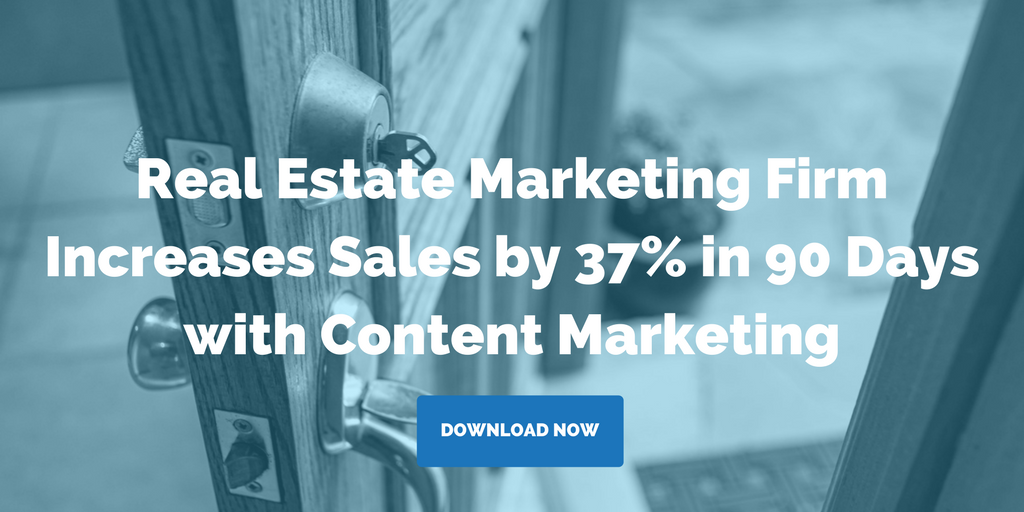Archive for Elizabeth Hines

6 Marketing Tasks Real Estate Marketers Can Outsource
Outsourcing doesn’t have to be a zero-sum game. Consider parsing off these marketing tasks based on internal resources and expertise.
Everyone needs a little help sometimes. That’s particularly true when it comes to real estate marketing. Real estate companies often find themselves stagnating in their marketing efforts as a result of having insufficient time, resources, and creative input to devote to marketing programs.
Outsourcing marketing allows you to focus on insourcing your core competencies, while delegating specialized tasks to external experts. And it’s important to note that you don’t have to outsource ALL of your marketing. Choosing several areas beyond your staff’s expertise or that are particularly time-consuming can help you improve your marketing efforts and take stress off an overworked internal marketing team.
So, here are 6 areas where you might consider outsourcing.
6 real estate marketing tasks to outsource
1) Website development and design
Sure, you could build a perfectly functional website from a template, or have your colleague’s techy niece put something together while interning with your company over summer break from college. But this is one area we feel strongly is best left to the pros.
A sleek, modern website that’s easy to navigate makes a big statement about your property. Potential buyers and tenants will visit property websites while researching and making purchasing decisions. The experiences they have while browsing contribute to their overall perception of the places. Imagine how poor site organization, outdated functionality, or technical problems reflects on your brand.
In addition to creating a well-functioning site, the right developer/designer brings niche specializations to the table as well, such as usability engineering, search engine optimization, and more. Capitalizing on a professional’s knowledge in these areas can make a big difference in web traffic, visitor engagement, and, ultimately, lead generation and increased revenue.
2) Social media management
Social media management sounds like it would be easy and fun. But if this task has ever fallen on your plate, you know the exact opposite is true. It can be one of the most time-consuming, frustrating tasks your business faces — and that’s before you realize you have to keep up with all the latest trends and platforms to be effective.
Outsourcing social media management to a knowledgeable partner can free up hours of your day and improve your social engagement and reach. These firms know what works and what doesn’t because they’re active every day on multiple platforms managing accounts for multiple clients.
And it’s not just posting every now and then. A good social media partner will craft and publish original content, but they’ll also curate great content from relevant sources. Outsourcing these tasks to the pros helps build a strong following and brand awareness for your company and properties.
3) Content creation
Blog posts, emails, case studies, white papers, ebooks, webinars, marketing collateral, newsletters — how much content is your staff responsible for creating on a weekly, even daily, basis? Is it the kind of informed, quality material you’re proud of?
Content creation is one of the easiest marketing tasks to outsource. It will immediately give your staff back hours into their days. And the right outsource partner will produce high-quality, SEO-optimized content that will drive traffic, generate buzz, and persuade buyers.
4) Videography, photography, and imagery
Video is the hottest content format right now. And it’s a huge opportunity for real estate marketers to show off properties to potential buyers across the globe. But shooting a professional-looking video or taking top-quality photographs of spaces is difficult, time-consuming, and expensive.
There are many firms and individuals that specialize in videography, and you’d be surprised how affordable and quick they can be. Or, some content creation partners also do video or can find a third-party videographer and manage the process for you.
A good content creation partner might also expand offerings to include photography, drone photography, and any other visual creative assets that might showcase your properties to prospective buyers or tenants.
5) Graphic design
This is one area where you really can’t fake it. Professional designers are worth their weight in gold, particularly when you need a professional document or graphic in a crunch. They can turn your documents into beautiful, easy-to-read brochures, or make dry, technical data into eye-catching infographics. You may be savvy with Word templates, but they’ve got nothing on the pro designers.
6) Strategy and execution
Did you know you can leave marketing strategy to the experts? The right partner will work closely with you to develop a strategy that closely aligns with your business and marketing goals. They can even execute the strategy for you, as well, and then provide you with regular updates on how it’s working. This kind of results-driven approach will ensure you’re stretching your marketing dollars to the fullest extent and getting the kind of results that will grow your bottom line.
Related posts:
-
Social Media Can Be a Strategic Weapon in Real Estate Marketing
-
6 Signs It’s Time to Consider Outsourcing Your Real Estate Marketing
Archive for Elizabeth Hines

Good Real Estate Marketing Gets Personal
Personal, emotional marketing messaging is one of the most effective ways to reach prospective buyers, particularly when it comes to real estate.
Investing in real estate is one of the most momentous personal decisions a buyer will make. So it makes sense that real estate marketers need to connect with buyers on a personal level to be effective. But, really, marketing in all industries and sectors needs to “get personal” to move prospects to profitable customer action.
Modern marketing is moving away from what Tech Crunch calls the “impression-centric paradigm,” in which the cost of media drives a campaign. And it’s moving toward a “user-centric paradigm,” in which marketers fully consider the consumer at the point of contact with the product. That’s fancy jargon that essentially means that companies are learning as much about target buyers as possible, then figuring out what will draw the most emotion from a person with that particular profile.
What information does your organization have about potential buyers? What information can you draw from social media (social prospecting)? Bring the two together, and begin crafting messaging for that persona. That’s pretty potent stuff.
The personal story
Particularly with buyers in the digital space, personalized, emotional messages attract the most attention. Think about messages that stuck out to you last time you browsed social media or various news and media outlets. My guess is that they touched you on a personal level.
To foster a connection with potential buyers through marketing, real estate marketers should use this knowledge to their advantage. Get personal with your messaging and creative. Real estate marketing lends itself to this kind of narrative — places can have powerful, engaging stories that can capture the hearts and imaginations of prospects.
Friends and neighbors
Emotional, personal narratives aren’t the only ways to reach potential buyers. One of the most important sources of spreading real estate brand awareness is peer-to-peer recommendation. Staying engaged with your social media audiences — and the conversation surrounding your brand and properties — is a great way to encourage this kind of referral.
After all, social platforms are at heart networks, meaning that any interaction you have with a follower will be seen by that person’s network. Show that you’re not some faceless building or property. If you can foster positive personal relationships with followers on social media, their networks will bear witness. And they’ll be left with a positive impression of your properties and brand.
Real estate is ideal for personal marketing. Know your buyers and tenants, and start to get personal. You’re sure to see results.
Related posts:
-
Social Media Can Be a Strategic Weapon in Real Estate Marketing
-
When Traditional Real Estate Marketing Methods Stop Working, Try Digital Marketing
-
Learn How Content Marketing Increased Real Estate Sales by 37% in 90 Days
Archive for Elizabeth Hines

Announcing Fronetics Real Estate’s Official Launch
Fronetics Real Estate brings digital and content marketing expertise to residential and commercial real estate clients.
It’s a big day for Fronetics! We’re officially launching our new brand, Fronetics Real Estate (FRE), offering digital and content marketing services to residential and commercial real estate clients.
Over the last two decades, real estate has seen a major shift in buyer behavior, with buyers now conducting the majority of their research online. Content marketing is an approach that puts real estate marketers in charge of the way prospective buyers and tenants perceive and interact with their properties. The strategic creation and distribution of content helps properties:
- Build brand awareness
- Generate prospects
- Lower cost per lead
- Increase occupancy
- Drive sales
- Improve retention
As content marketing experts, Fronetics Real Estate is uniquely positioned in the real estate industry. Firstly, we have a proven history of success with content marketing for real estate. Our clients benefit from having a dedicated account team that works exclusively with real estate clients — they know how to help them succeed.
Secondly, our approach is unique in that it starts with data and ends with measurable results. We design and execute a strategy that aligns with your business objectives. That way, our clients see movement where it matters: lower cost per lead, higher occupancy, and faster sales.
Real estate marketing services
Fronetics Real Estate’s portfolio of digital and content marketing services includes:
- Content marketing: strategy development, content creation, and execution
- Social media: strategy, management, distribution, advertising
- Email marketing: templates, marketing emails, workflows, and newsletters
- Website development: branding, design, maintenance, and content creation
- Paid advertising: pay-per-click and social media advertising
- Sales enablement: reporting and analysis, sales content optimization, automation
Whether you have luxury condominiums, for-rent apartments, a planned community, commercial properties, or mixed-use/retail space, we would love to show you about how Fronetics Real Estate can help you reach today’s prospective buyers and tenants. Schedule a free competitive analysis, subscribe to our blog, or contact us for more information.
Read the official press release.
Related posts:
- When Traditional Real Estate Marketing Methods Stop Working, Try Digital Marketing
- How Content Marketing Increased Real Estate Sales by 37% in 90 Days
- 5 Tips for Building a Successful Real Estate Social Media Marketing Program
Archive for Elizabeth Hines

Social Media Can Be a Strategic Weapon in Real Estate Marketing
Real estate marketers should embrace social media as a strategic tool for brand positioning, reputation management, and market intelligence.
Is your business cheating itself out of a major marketing advantage? It’s all too common for companies in the real estate industry to be stuck in traditional marketing methods that don’t reflect how modern buyers and tenants are searching for properties: online.
The real estate industry is built on relationships, partnerships, cooperation, networks, and communication. Being social is a key part of forging a successful real estate marketing strategy. It’s time for the industry to embrace the tools that social media platforms offer.
In addition to starting their searches online, buyers and tenants often write reviews about properties and agents online on social media sites and user-review sites like Yelp. Increasingly, your prospects will evaluate you based on what they read on sites like this.
So what can you do to leverage these resources? Real estate marketers can meet buyers and tenants where they are by using social media as a tool for brand awareness, lead generation, reputation management, and market intelligence.
4 ways to use social media as a strategic weapon in real estate marketing
Here are four ways you can make social media a strategic weapon for your business or property.
1) Distribute content and communicate
Social media is a natural way to communicate news and updates with your followers. Distribute your content as well as third-party curated content to share information with them. You’ll establish your brand as a valuable resource and enhance your property’s position within the marketplace by doing so.
2) Gain market intelligence
Potential buyers and tenants are online, sharing news and information with friends, colleagues, and — it turns out — you! So are your competitors, brokers, potential business partners, and important people in the community that have influence over various aspects affecting your property. There’s lots of valuable information that you can mine from social media. Use it to your advantage.
3) Control the conversation
Something people are talking about online? You and your property. Be an active participant in that conversation as a means to facilitate reputation management and to promote good customer service.
4) Listen and respond
Relatedly, taking the extra step of reading and responding to comments, posts, and reviews is what really makes social media such a valuable tool for the real estate industry. This way, you engender lasting and meaningful relationships with your buyers or tenants — and there’s no better way to build your brand and grow business than that.
Related posts:
- This Is How Often Real Estate Companies Should Post on Social Media
- When Traditional Real Estate Marketing Methods Stop Working, Try Digital Marketing
- 5 Tips for Building a Successful Real Estate Social Media Marketing Program
Archive for Elizabeth Hines

How Pay-Per-Click Helped This Property Get 54 Leads
Property X also saw web traffic grow by 180% in 90 days by using Google AdWords and Facebook Ads.
Sometimes our clients can be a little hesitant to try pay-per-click advertising. Take Property X, for example.
Property X’s target customer fits a very particular profile, in terms of geography, income, and age. Because of those specific demographics, and because the price point of the property was quite high, the client was not confident that a pay-per-click advertising campaign would be an effective way to reach those target customers. But we thought differently.
When paired with a content marketing program, pay-per-click can be one of the cheapest, in terms of cost-per-lead, and most efficient ways to reach a target audience. Thus, we convinced Property X to try PPC on a trial basis, investing just a small budget.
We developed a strategy for the client, using Google AdWords and Facebook Ads. Over the course of 90 days, the results were phenomenal.
A few key results:
- Property X acquired 54 leads.
- Traffic from paid search grew by 180%.
- The lead-to-customer conversion rate was nearly 3x the industry standard.
Needless to say, Property X will be expanding the use of pay-per-click advertising in the future.
How can pay-per-click help your property?
PPC can seem intimidating to the novice. But, when done right, it can be a highly effective way to reach the very specific kind of buyer or tenant your property is looking for. It helps build brand awareness and generate leads, but it also can serve as a constant reminder to buyers or tenants considering your property.
A little bit of know-how can be all the difference. Partnering with a third-party firm to help you navigate the many pay-per-click and social advertising options will help you ensure you’re getting the most bang for your buck and that your messaging and user experience is consistent across all channels.
Related posts:




